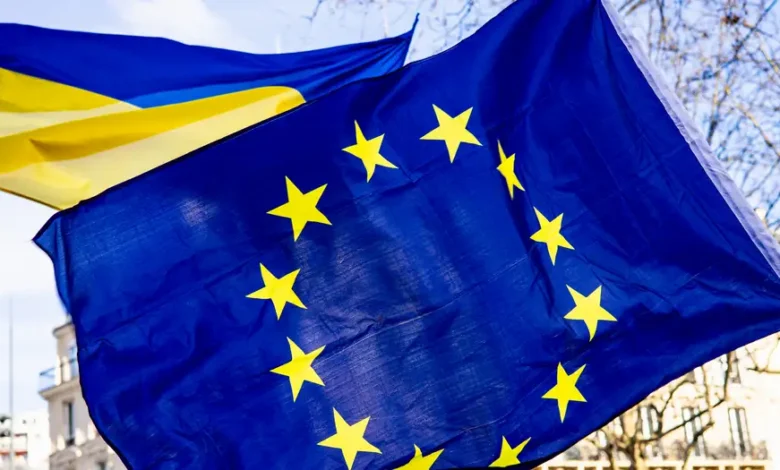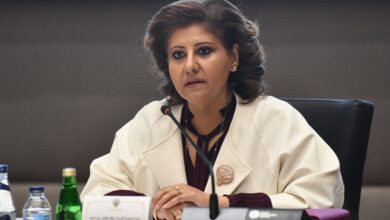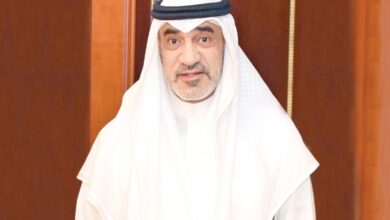
- The uncertainty over the potential Trump–Putin meeting underscores Europe’s delicate balancing act: maintaining unity with Washington while defending its own strategic interests.
- Many EU governments have already made political concessions to stay on Trump’s good side — from accepting trade terms viewed as one-sided to pledging higher defense spending targets.
- For now, European officials are trying to downplay the symbolism of Budapest, emphasizing the importance of substance over venue.
- “Budapest is just a location,” said Denmark’s foreign minister Lars Løkke Rasmussen. “This is the U.S. president’s decision to meet his Russian counterpart. What matters is that Europe stands firmly with Ukraine.”
European leaders are reaffirming their commitment to Ukraine’s sovereignty after reports that U.S. President Donald Trump was considering holding peace talks with Russian President Vladimir Putin in Budapest — a prospect that has unsettled EU capitals.
The postponement of the much-anticipated Trump–Putin meeting brought temporary relief to Kyiv’s allies, who fear that Hungary, the EU’s most Russia-friendly member, could use such talks to advance Moscow’s interests under the banner of peace.
This week’s high-level summits in Brussels and London will test Europe’s resolve to sustain financial and military support for Ukraine while urging Washington to maintain pressure on Moscow, dw.com reports.
“Russia’s stalling tactics have shown time and again that Ukraine is the only party serious about peace,” read a joint statement from the leaders of Ukraine, the United Kingdom, Germany, France, Italy, Poland, Finland, Denmark, Spain, and Sweden, along with top EU officials. “We must increase economic and defense pressure on Russia until Putin is ready to make peace. Work is underway to channel frozen Russian assets to ensure Ukraine has the resources it needs.”
EU Bristles at Budapest as Possible Meeting Site
The idea of Budapest hosting a Trump–Putin meeting has sparked discomfort across the bloc. Such an encounter would mark Putin’s first visit to EU soil since launching his full-scale invasion of Ukraine — and since his indictment by the International Criminal Court (ICC) for alleged war crimes.
“The only place for Putin in Europe is The Hague — in a tribunal, not any of our capitals,” Lithuania’s top security adviser Kęstutis Budrys said in Luxembourg. Ireland’s Prime Minister Simon Harris called the proposal “provocative,” while France’s foreign minister said any meeting “would only make sense if it led to an immediate and unconditional ceasefire.”
Hungary’s Prime Minister Viktor Orbán, however, has touted his country as the “only suitable” location for such talks, citing its self-proclaimed “pro-peace” stance. Yet many European officials view Budapest as Moscow’s “Trojan horse” inside the EU, given Orbán’s repeated obstruction of sanctions against Russia and criticism of Western military aid to Kyiv.
Legal and Logistical Hurdles for Putin’s Visit
Despite Hungary’s recent move to withdraw from the ICC, legal experts say it remains obligated for another year to detain any individual under an active arrest warrant — including Putin — should he enter its territory.
“There are no real consequences when states ignore those obligations,” said Mathias Holvoet, a lecturer in international criminal law at the University of Amsterdam, noting past failures by other countries to arrest indicted leaders.
Even if the Budapest meeting proceeds, logistical issues remain. The EU’s airspace ban on Russian aircraft, in place since 2022, would require individual member states to issue special flight exemptions for Putin’s plane — an unlikely prospect given regional tensions.
Hungary, a landlocked state, borders only EU members except for Serbia, which has resisted aligning with Western sanctions and could serve as a potential transit route.
Balancing Trump and Transatlantic Unity
The uncertainty over the potential Trump–Putin meeting underscores Europe’s delicate balancing act: maintaining unity with Washington while defending its own strategic interests.
Many EU governments have already made political concessions to stay on Trump’s good side — from accepting trade terms viewed as one-sided to pledging higher defense spending targets.
For now, European officials are trying to downplay the symbolism of Budapest, emphasizing the importance of substance over venue.
“Budapest is just a location,” said Denmark’s foreign minister Lars Løkke Rasmussen. “This is the U.S. president’s decision to meet his Russian counterpart. What matters is that Europe stands firmly with Ukraine.”












